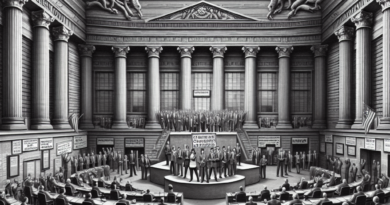“Interview with Professor D’Alimonte: Analysis of Misguided Reform and Lack of Real Surprises at European Elections”
Elections and Political Dynamics in Italy
With three weeks left before the European elections on June 8th and 9th, the political debate in this lackluster campaign seems to revolve more around the absence of a television debate between Giorgia Meloni and Elly Schlein rather than on EU-related issues.
The focus also shifts towards the prime ministerial reform, triggering upcoming demonstrations from the Democratic Party.
Expert Analysis on Italian Political Landscape
To gain insights into the current scenario, we turn to Professor Roberto D’Alimonte, a renowned political scientist and university professor specializing in electoral systems.
Reflecting on the drastic shifts in Italian voting patterns, he acknowledges the volatility in the electorate, yet downplays the likelihood of major surprises in the upcoming elections based on current polling data.
While minor shifts are anticipated, such as the performance of various parties like Fratelli d’Italia and the Democratic Party, Professor D’Alimonte underlines the absence of a groundbreaking political offer that could significantly alter the electoral landscape.
Leaders’ European Candidacies: A Domestic Trend
The increasing trend of leaders running for European positions but not intending to serve in Brussels or Strasbourg is heavily criticized by Professor D’Alimonte.
He argues that such actions undermine Italy’s credibility in Europe, indicating a solely national focus in what should be a European election.
The Controversy of the Prime Ministerial Reform
Discussing Giorgia Meloni’s characterization of the prime ministerial reform as “the mother of all reforms,” Professor D’Alimonte expresses dissent.
While acknowledging the goal of enhancing stability through direct election of the prime minister, he suggests achieving this objective without modifying the constitution.
By reforming the electoral law with a proportional representation system and majority bonus, while retaining parliamentary oversight, the essence of direct popular choice could be preserved.
Referendum Prospects and Future Political Scenarios
Regarding the potential referendum on the reform, Professor D’Alimonte notes the parallelism with Matteo Renzi’s fate.
He speculates on the outcome, emphasizing the importance of the political context during the referendum as a decisive factor.
While acknowledging the appeal of direct elections to voters, the professor underlines the unpredictability of future scenarios and voter sentiments.


